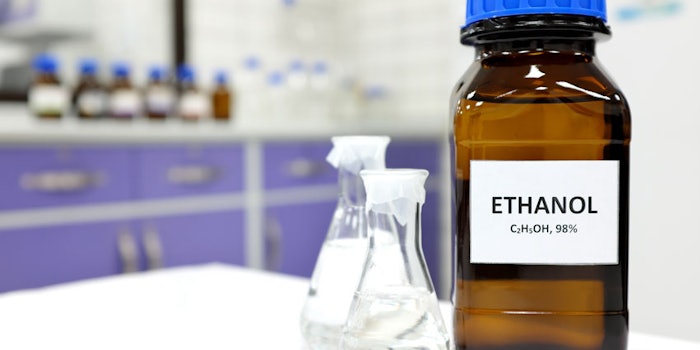
Since relaxing the rules last March to quickly fulfill a desperate hand sanitizer need, the U.S. Food and Drug Administration (FDA) has been watching products flood the market—and flagging those tested or suspected to contain dangerous methanol in its "do not use" list.
Now, the agency has released a guidance policy for manufacturers to test for this contaminant in alcohol (ethanol) and ispropyl alcohol supplies before they are used for hand sanitizer production.
See related: FDA's Sanitizer Hotlist Cites Nevada Distributor, Calls Out Subpotency and Methanol
According to the policy:
"In response to the demand for alcohol-based hand sanitizers during the COVID-19 public health emergency, FDA issued temporary policies for the manufacture of alcohol-based hand sanitizer products and ethanol for use in alcohol-based hand sanitizer. The temporary policies explain that FDA does not intend to take action against firms with respect to certain violations of the FD&C Act, including section 501(a)(2)(B), provided that certain conditions are present.
"Use of pharmaceutical alcohol procured from another source, rather than manufactured in-house by the firm, is consistent with those policies if the firm tests, or has tested, each lot of the pharmaceutical alcohol for methanol content prior to use. For both ethanol and isopropyl alcohol, FDA recommends the test methods described in the USP Alcohol Monograph.
"FDA strongly recommends the test for methanol be conducted in a laboratory that has been previously inspected by FDA and found in compliance with CGMP. All personnel involved in production of hand sanitizer products (especially personnel directly responsible for receipt, testing, and release of pharmaceutical alcohol) should be made aware of the importance of proper testing and the potential hazards if the testing is not done.
See related: How NOT to Formulate Hand Sanitizers
"For these products, any pharmaceutical alcohol that contains more than 630 ppm methanol is not consistent with FDA’s temporary policies and may be considered evidence of substitution and/or contamination. Hand sanitizers containing methanol-contaminated ethanol or isopropyl alcohol may be considered adulterated under sections 501(a)(2)(A), 501(a)(2)(B), and/or 501(d) of the FD&C Act."
The agency emphasized that methanol is not an acceptable ingredient in any drug product and should not be used due its toxic effects. Skin exposure to methanol can cause dermatitis, as well as transdermal absorption with systemic toxicity. Substantial methanol exposure can result in nausea, vomiting, headache, blurred vision, permanent blindness, seizures, coma, permanent damage to the nervous system or death.
Download the full FDA "Policy for Testing of Alcohol (Ethanol) and Isopropyl Alcohol for Methanol, Including During the Public Health Emergency (COVID-19)" for complete details.










